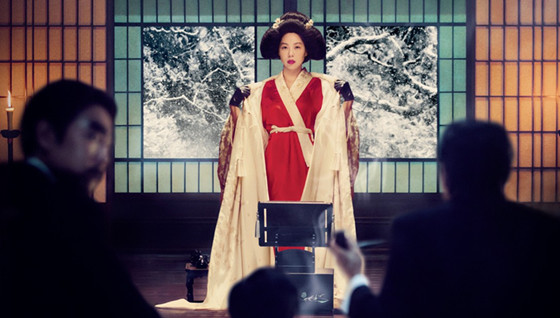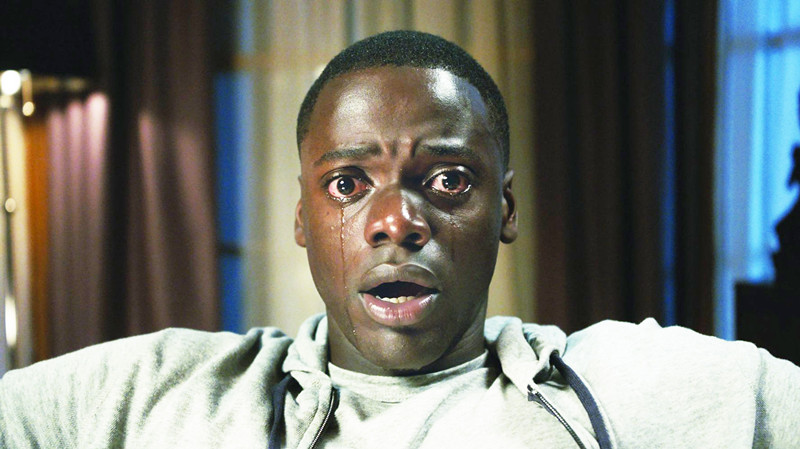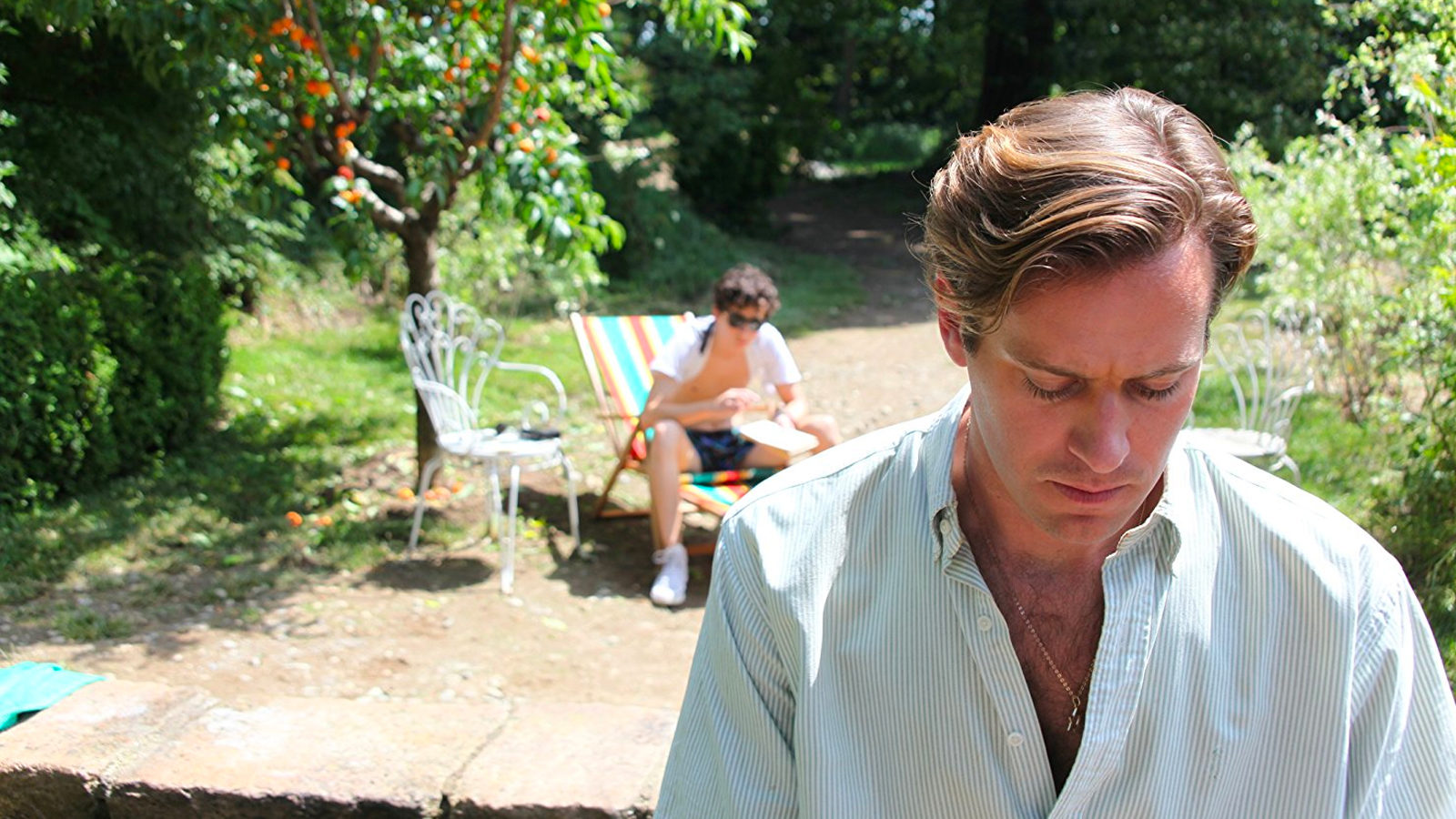5. Blade Runner 2049 (Denis Villeneuve, 2017)

When the belated sequel to Ridley Scott’s science-fiction classic was announced it was met with predictable upset and hostility. Those that wanted it once upon a time had seemingly gotten past the idea, and those who felt that its legacy should remain undisturbed vocalised their opinions accordingly.
Then the director was announced, which caused certain die-hard fans of the original film to warm slightly to the idea; Denis Villeneuve had impressed with such work as Incendies, Prisoners and Enemy, so maybe the film would be an unexpected success.
Finally, in 2017 – over three decades after the face of sci-fi cinema shifted – Blade Runner 2049 was released, and almost all of the fans, ranging from the hysterically excited to the skeptical, were left mind-blown. Expectations were surpassed, and the film was a miraculous success.
The film is set thirty years after the events of the original, this time following a new blade runner, K (Ryan Gosling), who uncovers a secret which threatens to forever disturb the balance of society; confirmation that their wide-believed knowledge is false. His quest leads him to seek the assistance of Rick Deckard (Harrison Ford), who has been missing for decades, and together they must strive to further reveal the truth.
Blade Runner was a film of many ideas: visual, philosophical, moral, which all fed into something which felt new and refreshing. Ideas of villainy were subverted, as were genre conventions – Scott aimed for hybridity, blending iconography, cinematic techniques and narrative elements of film-noir with that of science-fiction, resulting in a detective-film rich in influence.
Villeneuve sticks closely to the tone of his films predecessor, building upon and further commenting on Scott’s visual style, conjuring up an equally rich mise en scene characterised by imaginative and futuristic nihilism. In every aspect, Blade Runner 2049 is a bafflingly ambitious sequel, and it succeeds at every turn. It possesses the ability to make you think, gasp, reflect and discuss, just as we wished it would.
When it was announced nobody expected that it would live up to the legacy of the original, and yet Villeneuve went ahead and achieved something many would have thought impossible, and that is to create a sequel every bit as fascinating as the first – some even go further than this, declaring that with time it may even prove better.
While most will unlikely consider it superior, there is no questioning that it will be remembered as one of the most impressive and surprising sequel efforts in history, and just as likely, an example of classic science-fiction. Fast forward thirty years.
4. The Handmaiden (Chan-wook Park, 2016)

Perhaps the best praise that can be sung when discussing The Handmaiden is that it was as brilliant as it should have been. There was no doubt that Chan-wook Park would craft something very special here, a luscious and erotic period-drama dealing with deception and desire.
Many recognise the figure as an ambassador for modern South-Korean cinema, responsible for such enthralling works as 2009’s Thirst and 2002’s Sympathy for Mr. Vengeance, the first of a loose trilogy. His crowning achievement came a year after; Oldboy is nothing short of a modern-classic, a film which continues to thrive. His 2016 film – inspired by Welsh novelist Sarah Waters’ Fingersmith – saw him release his best film in thirteen years, and even more surprising, exhibits unforeseen rejuvenation
Set in 1930’s Korea during Japanese occupation, a young woman named Sook-Hee (Tae-ri Kim) is hired by a wealthy family to be the handmaiden to a beautiful heiress. She lives a restricted life, sheltered away in a grand estate by her uncle. However, secrets are concealed in every corner of the film’s design; rooms that feature hidden treasures and tribulations, characters who disguise their truths, in turn stimulating a narrative brimming with breathtaking reveals.
Visually the film is an absolute delight, the exterior colour palettes are lavish and mesmerising, contrasting the dark and broody interiors of the home that imprisons its characters. The twisted side many associate with the filmmaker is also allowed to flourish, executing scenes of torture which present themselves at just the right moment during emotional heights.
In terms of production design it has everything working in its favour, and with such a terrific story it becomes a film impossible to deny, concluding in a way so satisfying that returning to it feels like an accolade for following Park’s career.
It would be sensible to assert that Chan-wook Park has successfully written himself into cinema history, and it is hard to find someone who is yet to acquaint themselves with his work. With The Handmaiden he continues to express his sublime talents, and in many years time this will certainly be one of the defining efforts he is remembered for.
3. Get Out (Jordan Peele, 2017)

Here it is, the film that took 2017 by storm. It can only be Jordan Peele’s horror-satire Get Out. When the comedian announced his first feature-film there was excitement amongst his fans, and of course small intrigue from genre fans; needless to say, it wasn’t huge news.
Then it was released, and the discussion is yet to cease. To say that things like Get Out don’t often happen would be an understatement, because the film was and is nothing short of a mainstream sensation.
With an estimated budget of just five million dollars, it went on to become the most financially successful film of the year when adjusted for inflation, and not only that, it featured on almost every film critics’ best films of the year list. It then continued to make history, as it went on to be nominated for four Academy Awards, including Best Picture, and even won for Best Original Screenplay.
Chris (Daniel Kaluuya) is going to his girlfriend’s family-home for the weekend to meet her parents for the first time. He has only one question: “Do they know I’m black?” A question that shouldn’t have to be asked, and yet due to America’s current political climate, he feels must. However, the film never lowers itself to swipe for easy targets, and instead delves into discussing the patronising faux-politeness of white, wealthy liberals.
The scene in which Chris attends the family get-together is brilliantly written, offering up satire in a way that makes us highly uncomfortable. Peele does this by heightening the protagonist’s sense of alienation through observational and sharp humour, in a way that cuts to the message at its core while dissecting old and ridiculous notions of the exotic “other”.
Personally, the horror elements of the last act don’t work quite so well, and it feels like it falls into the trap of becoming the very film it wished to analyse and avoid. At first it appeared like it may just be a film commenting on the fear and paranoia still plaguing modern race relations, and that perhaps what Chris was experiencing during his visit was in fact an insightful commentary on the way African-Americans are urged to feel around white people. Instead, it goes into genre-territory and does something, which admittedly, still results in a good film which comments on jealousy and rotten competition – something more complex.
It will surely go on to become a modern-horror classic, and it deserves to. It’s an intelligent genre film that offers shock-value, good performances, and at its core, something deeply pressing to communicate, and the fact that Peele managed to invade the mainstream with Get Out is worth celebrating.
2. The Social Network (David Fincher, 2010)

The collaboration between accomplished screenwriter Aaron Sorkin and applauded filmmaker David Fincher turned out to be every bit as impressive as we’d hoped for. When the film was first announced, a huge portion of filmgoers voiced their distaste, derogatorily dubbing it “The Facebook Movie”, and remarking that no one needs to see a film about something so dull.
Fans of the director rejoiced upon its release, hailing it as one of the greatest achievements of his career, and even those who shunned it prematurely were surprised by the exciting and absorbing narrative of The Social Network.
Chronicling the creation of the most significant social media revolution in history, we follow the story of Mark Zuckerberg, a creative genius who found success in influencing the way we all communicate. Fincher immediately suggests the origins and inspiration for such a concept – Jesse Eisenberg’s portrayal of the entrepreneur paints him as cold and repressive of his own human emotions, measuring status in intelligence and excluding his cruel treatment of others.
It becomes clear why someone like Zuckerberg would realise such an idea, and the relationships with his peers provide the film with a beating heart. To say that this is a film about Facebook is misleading; it’s about friendship and betrayal, presenting a story we can all relate to on an extreme scale.
The casting was impeccable, with Andrew Garfield, Justin Timberlake and Eisenberg turning in career-best performances. The real stand-out is Sorkin’s Academy Award-winning screenplay which never allows us a moment to breathe, overloading us with information and emotion, feeding into a dilemma which we wholeheartedly invest our own opinions and project our own experiences onto.
It never slips up for a second, and personally, it unmistakably feels like Fincher’s finest hour – a stunning piece of work and one that will no doubt be regarded in many years time as a valuable and timely American classic.
1. Call Me By Your Name (Luca Guadagnino, 2017)

To consider a film an “instant classic” is rather confusing; it takes time to determine such a thing, and even films that receive an overwhelming volume of praise initially can be forgotten by majority audiences. The measurement of a classic is to judge how its quality and impact continue to prosper in the wake of its release, remaining in discussion for years to come for what it managed to achieve.
A film cannot be declared a classic until adequate time has passed, however, it is always rewarding and exciting to make assumptions. Everyone will have their own predictions, but it would be hard to disagree with this: Call Me By Your Name is destined for such prestige.
In the summer of 1983, Elio’s (Timothee Chalamet) sexuality is confronted with the arrival of young American grad-student Oliver (Armie Hammer), coming to Italy to shadow the work of Elio’s father, an archaeology professor.
At first there appears to be no chemistry or spark between the two, just a self-imposed barrier dividing them from what could have been a potential friendship. Their casual conversation and bickering appears to be out of courtesy to one another, and then, something occurs that transforms their summer, suggesting lifelong repercussions.
When Elio and Oliver first lay down on the grass, soon to experience their first kiss, there is a sense of the unexpected. The act is spontaneous, and that’s what is so refreshing about Luca Guadagnino’s wonderful film: it allows its relationships and sense of romance to blossom gradually.
Often films like this conform to genre convention, pushing for impressions of instant connection and fate. This is avoided, acknowledging that often romance and attractions aren’t always instantly apparent, but rather something out of our control that we are unawarely waiting to unleash. Parallels are formed between achaeological discovery and that of the central character’s own self-discovery, recognising that the male form has long been a source of allure.
The film is a model example of a complex, moving and emotional coming-of-age story, turning its gaze to that of sexual awakening and a teenager’s realisation that love and desire cannot be dictated by conventionality and gender.
Despite this, it is a story handled so gorgeously that it would almost be impossible not to connect to its characters and their experiences, despite your sexual orientation. In the end, we believe that Elio is forever changed, and with him, a part of us is too.